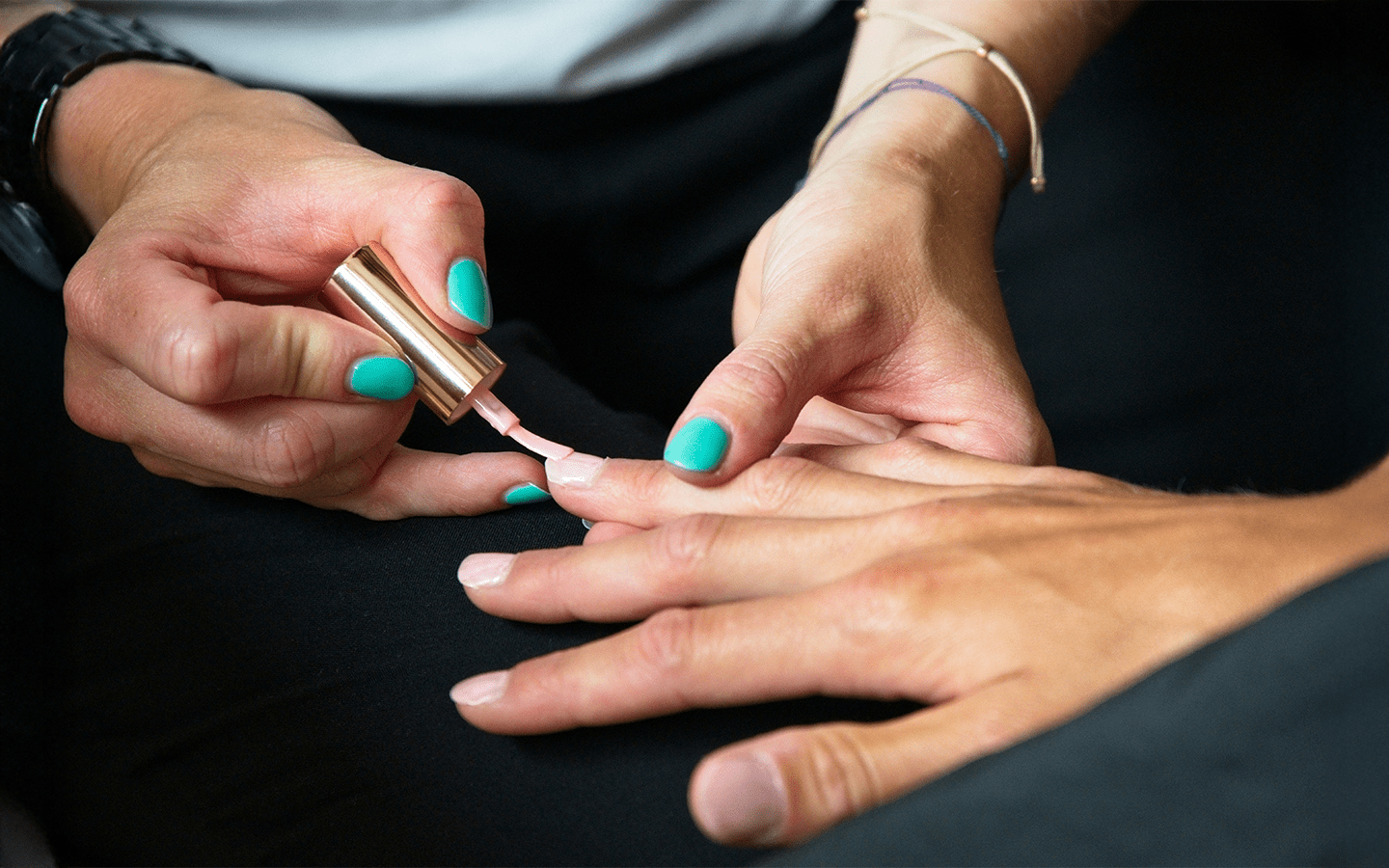
How to Calm Your Racing Heart: Breathwork for Real Life Stress
What to Do When You Feel Like You're About to Jump Out of Your Skin
Let me paint you a familiar picture. You're walking into a meeting, or sitting in your car outside your kid's school, or standing in line at the grocery store when suddenly—your thoughts start spinning and your heart starts racing. Not just fluttering, but pounding so hard you're convinced others can hear it. Your chest tightens. Your breath gets shallow. You feel that prickly edge of panic rising in your throat.
And then comes the cascade of thoughts: A sense of control slipping away "Please make this stop!"
Sound familiar?
If so, welcome to being a brilliant, high-functioning woman in a high-pressure world. Midlife only amplifies the tension—your hormones are shifting, your plate is full, and your inner thermostat is on the fritz. But here's the good news: there's a simple, science-backed solution that's always available to you. It doesn't cost a thing, it fits in your back pocket, and it works faster than a glass of wine or a scroll through Instagram.
It's simple breath control.
Why Breathwork Works (and Why It's Not Woo)
In both Chinese medicine and modern physiology, the breath is sacred. It's the bridge between the body and the mind, the conscious and the subconscious. In Daoist philosophy, the breath is the rhythm of life—it governs qi, your life force.
In Western science? We see it activate the parasympathetic nervous system—the part of you responsible for "rest and digest" rather than "fight or flight." Studies show that slow, intentional breathing can regulate heart rate, reduce cortisol levels, lower blood pressure, and even improve sleep and immune function.
And this isn't just theory—it's performance science.
Elite athletes, from Serena Williams to Olympic free divers to Formula 1 drivers, use breathwork not just to calm nerves, but to sharpen focus, accelerate recovery, and maintain precision under extreme pressure. Research shows that targeted breathing practices increase heart rate variability (HRV)—a marker of nervous system flexibility and resilience.
This is the same physiological training used to recover between sets, reset before free throws, and enter flow state on the world's biggest stages. And here you are—managing work, hormones, and a full inbox with no halftime break.
Let me put it plainly: you can breathe your way out of a panic spiral. And you can train your body to respond to stress like a champion.
"But I'm Too Stressed to Even Think About Breathing"
I get it. When your heart's racing, it feels like you're trying to calm a stampede with a whisper. But think of it like this:
It's like standing in front of a door marked peace of mind, clutching the key in your hand—and forgetting you can turn the lock.
Your breath is the key. You already have it. You don't need to earn it, buy it, or meditate in a cave for seven years to access it. You just have to remember to use it—especially in the moments that feel the most chaotic.
Here's how.
3 Breathwork Techniques for Real-Life Stress
These aren't "light a candle and find a mountain" practices. These are carpool lane, before-the-meeting, bathroom-stall breath resets.
1. Box Breathing (aka Tactical Breathing)
Used by Navy SEALs, this method regulates your nervous system and increases focus. It's literally designed for high-stakes situations.
Try it:
- Inhale for 4 counts
- Hold for 4 counts
- Exhale for 4 counts
- Hold for 4 counts
- Repeat for 4 rounds (or more)
This one's perfect before a tough conversation or stepping on stage (or into that family reunion).
2. Extended Exhale Breathing
This is the "secret sauce" for calming a racing heart. A longer exhale sends a clear signal to your vagus nerve that you're safe. Scientific evidence shows that longer exhalations activate the parasympathetic nervous system more effectively than shorter ones.
Try it:
- Inhale for 4 counts
- Exhale for 6 to 8 counts
- Repeat for 2–3 minutes
Do this when you feel anxious in your body but can't quite locate the trigger. It's subtle but powerful.
3. Sighing Breath (Yes, Literally Sighing)
Ever let out an involuntary "ugh" after a stressful day? That's your body trying to regulate itself. Let's do it on purpose. Scientists have found that intentional sighing, particularly effective for those with higher anxiety levels, helps reset the nervous system and provides immediate relief.
Try it:
- Inhale fully through your nose
- Let out a loud, audible sigh through your mouth
- Repeat 3–5 times
This is a personal favorite for breaking the freeze response and shaking off emotional residue after difficult news or overstimulation.
Real Talk: Breathwork Isn't Just for Yogis
I use breathwork every single day in my own life—and not always in a serene, spa-like setting.
I've done sighing breaths while unloading the dishwasher, box breathing in the Whole Foods parking lot, and extended exhales while waiting for my son to text back (you know the one I mean).
And I teach these techniques in clinic, too. One patient—let's call her Sara—used to have full-blown anxiety attacks before presentations. After just one week of practicing box breathing, she told me:
"I walked into that boardroom like I owned the place. No meds, no panic, just... presence."
That's the power of breath.
A Note on Hormones, Midlife, and the Racing Heart
Here's something most doctors won't tell you: Perimenopause and menopause can trigger heart palpitations and anxiety that feel like panic attacks—but aren't.
In Chinese medicine, this is often related to a depletion of yin (cooling, calming energy) and excess yang (heat, agitation). The result? You feel revved up, even when your mind knows you're safe.
Breathwork, especially practices that extend the exhale or activate the vagus nerve, can help restore that balance while also supporting your cardiovascular and emotional health.
And when paired with acupuncture, herbal medicine, and nervous system-supporting rituals? Game-changing.
Your Next Move (Because You're in Charge Here)
You don't have to wait for a retreat, a perfect morning routine, or a silent room to begin.
Start now. Pick one breath technique. Try it the next time your heart starts galloping. Notice how you feel afterward.
And if you're local to Newport, RI, come visit the studio for a session where we can support your nervous system with acupuncture, lymphatic work, and personalized breath coaching. If not, check out my newsletter for DIY support, guided audio, and resources to help you thrive from anywhere.
Because you're not fragile. You're powerful. And you've got everything you need—starting with your next breath.
Key Takeaways
- Your breath is your most accessible tool for calming a racing heart
- A comprehensive review of multiple studies found that breathwork interventions significantly reduce stress, anxiety, and negative mood compared to control groups
- Techniques like box breathing, extended exhale, and sighing breaths can be done anytime, anywhere
- Midlife hormone shifts may amplify stress responses—breathwork helps you recalibrate
- This is your moment to take back control—with one breath at a time
Want More Tools Like This?
Subscribe to Hey Dr. Catherine and get practical, elegant tips delivered to your inbox weekly.
And if you're craving personalized support, book a free consultation to explore what's possible when you lead your wellness journey from the inside out.













